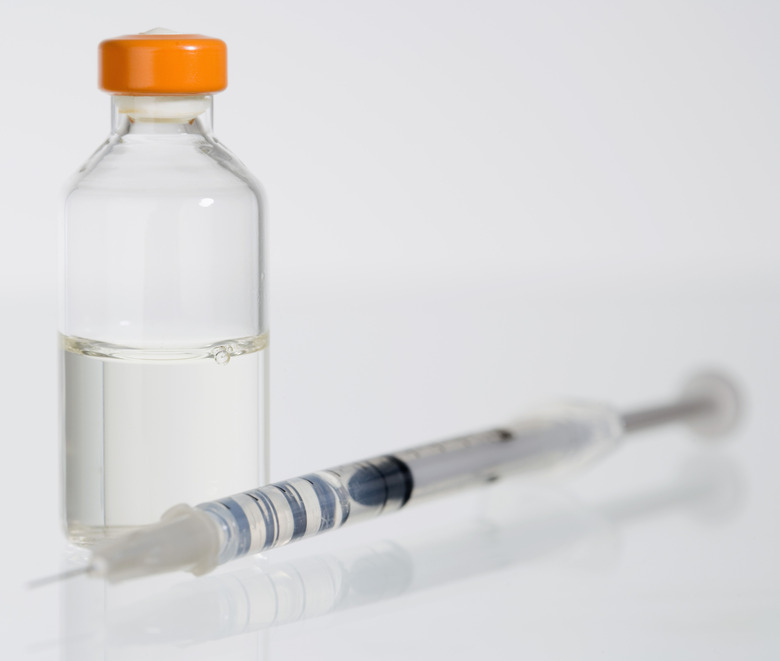What Hormone Is Responsible For Restoring Homeostasis?
Homeostasis is the ability of an organism to maintain equilibrium; in a human being, homeostasis is balanced by the metabolism, which compensates for disruptions in the body's function. Experiencing changes in temperature, eating certain types of food and undergoing emotional or physical stresses can all disrupt a person's homeostatic state; hormones, either ingested, injected or naturally secreted, restore that homeostasis.
Restoring homeostasis
Restoring homeostasis
The basic restorative hormone in the body is insulin, secreted by the pancreas as part of the balancing act of the endocrine system. Insulin maintains the normal amount of sugar in the bloodstream; an overabundance of sugar will disrupt homeostasis. Anyone with a diabetic condition can describe the dizziness and lack of balance that accompanies a blood-sugar "high" — this is the body's attempt to restore its equilibrium without sufficient insulin, which is why diabetics inject themselves with the substance. The phenomenon of restoring homeostasis is comparable to a thermostat compensating for temperature changes.
Cite This Article
MLA
Stratford, Michael. "What Hormone Is Responsible For Restoring Homeostasis?" sciencing.com, https://www.sciencing.com/hormone-responsible-restoring-homeostasis-13417/. 24 April 2017.
APA
Stratford, Michael. (2017, April 24). What Hormone Is Responsible For Restoring Homeostasis?. sciencing.com. Retrieved from https://www.sciencing.com/hormone-responsible-restoring-homeostasis-13417/
Chicago
Stratford, Michael. What Hormone Is Responsible For Restoring Homeostasis? last modified March 24, 2022. https://www.sciencing.com/hormone-responsible-restoring-homeostasis-13417/
